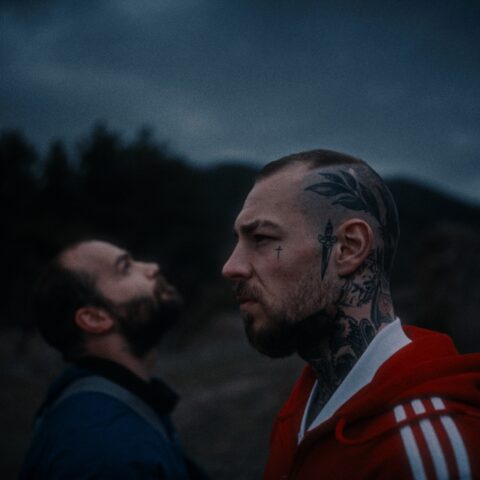For the most meticulous filmmakers, the 1:1 ratio offers perfect close-ups, one-point perspectives and a pervasive, claustrophobic atmosphere. Coupled with real film grain and interesting, lived-in faces, including the inked-up rapper FYRE (Ognian Pavlov) as Kaloyan (Koko for short), this Instagram-lite aesthetic makes for arresting, dark visuals that complement Proxima competition entry Windless’ (Pavel G. Vesnakov, 2024) deep dive into contemporary Bulgarian life — stuck between a tragic past and the hollow promises of the future.
But the very same ratio, with its focus on faces and tightly-wound images — glimpses of the crumbling countryside caught through the back of a truck, partially obscured by the fluttering of tarpaulin; the back of our hero’s heavily tattooed head; bodies huddled in doorways, the frame becoming even smaller and smaller — also has its limitations. While every image can be printed and blown up in an art gallery, it narrows the film’s perspective, restraining its ultimate emotional impact.
Sporting the same red jacket he wears in his music videos, Pavlov brings an affecting naturalist air in his debut, playing an emigrant returning from Spain to his Bulgarian hometown to deal with his late father’s affairs. We never see this enigmatic patriarch, Vesnakov shading in the details through beer-enhanced anecdotes: how he would look after his own father to the end, get in scraps with the police, or donate half his salary to a starving gypsy family. In death, his father has only grown in stature.
Windless blends the banal details of dealing with a relative’s death (clearing out the house, signing paperwork) with the more emotional, long-term effects of grief. With the camera almost always capturing people head-on (there’s no more space in this tiny square frame), the cuts between characters create an interesting sense of disorientation, forcing the passive Koko to finally come to terms with his feelings towards his father.
But his father represents more than just the personal. With the town ready to turn into an ambitious casino-golf-course-spa-hotel complex, he represents a way of Bulgarian life that’s slowly dying out, aided and abetted by the young leaving in their droves. Vesnakov avoids capturing construction or corruption, instead touring the old as they say goodbye to their homes, often relaying depressing anecdotes about their long-lost children — off to the USA and the western EU.
The result would be uniformly grim, were it not for warmly lit scenes with what remains of Koko’s extended family. These funny moments heighten the pathos; make the grief feel stronger. But these individual moments struggle to breathe outside of Pesnakov’s super-tight framing choices, repetitive dialogue and shots, and a weak narrative throughline. While aesthetically interesting throughout, the movie becomes as airless (windless?) as the title suggests.
Redmond is the editor-in-chief of Journey Into Cinema.





